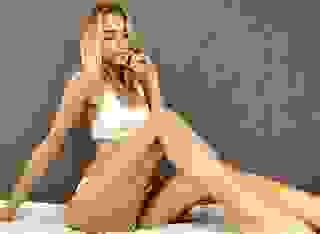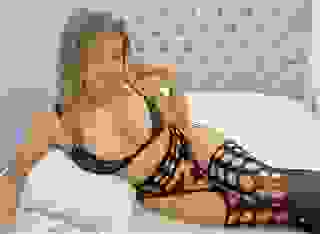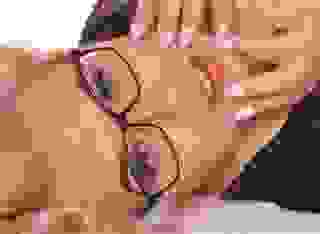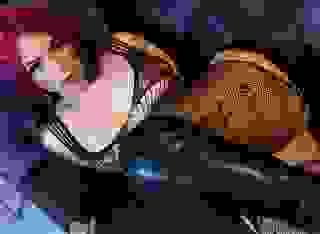- Non-Erotic
- I Killed Paul Monet
Note: You can change font size, font face, and turn on dark mode by clicking the "A" icon tab in the Story Info Box.
You can temporarily switch back to a Classic Literotica® experience during our ongoing public Beta testing. Please consider leaving feedback on issues you experience or suggest improvements.
Click hereIt's remarkable to me the fact that I have to first explain to you who Paul Monet is. First off is he is no relation to the artist of the same surname.
Paul Monet was born April 3, 1896 in the small town of Saint-Sauveur-en-Diois in the French Alps. He was one of the bigger children in the town and it was his nature to dispense beatings to the other children as he saw fit. Into his teen years would sometimes beat up the adults who dared to challenge him. It was then little surprise that he frequently attracted the attention of the gendarmerie.
It was an auspicious July week in 1914 when Monet had yet another serious tangle with the gendarmerie. He ended up before a magistrate who was all too familiar with the troublesome teenager. The magistrate gave Monet the choice of deportation to an Algerian prison or enlistment in the French Army. Monet fatefully chose the Army.
Monet's gift for marksmanship and brutality were embraced and encouraged in the Army. France was embroiled in the struggle of The Great War and such men were highly prized. As the war raged on Monet flourished and was rewarded with the rank of Chief corporal. Monet's willingness to engage the enemy being invaluable to his commanders.
In July of 1916 Monet and his unit were entrenched in the Battle of the Somme where Monet made a sport of shooting and killing the German dispatch runners. His commanders would wince at the brutality of their corporal who would often critically wound the dispatch runners and then kill the medics who tried to rescue the dispatch runners. Despite the unpleasant manner of his hobby of killing dispatch runners his commanders had no choice but to praise him in their reports for disrupting enemy operations. He received the 'Croix de guerre' (War Cross) medal for his numerous successes in killing the dispatch runners and for his repeated bravery in dashing out onto the battlefield to recover the military documents carried by the runners.
Corporal Paul Monet would in later years reflect on his humble War Cross medal as the most valuable of all of his decorations as it was the only one he truly earned.
The Great War concluded with not a victory but an armistice. Monet was disappointed that the French Army was denied their triumphant march beneath Berlin's Brandenburg Gate and a simmering hatred rose in his heart.
Monet spent the 1920's drifting from one place to another. He often worked in slaughtering farm animals and would spend much of his time engaging with the intellectuals of the day. It was in the city of Saint-Étienne where he met up with the nascent Radical Nationalist Party (PNR) leader Marc Leclerc. The two were immediate friends as they both shared a violent and glorious vision for a resurgent French Empire.
As fortune would have it Leclerc was recalled to active duty when France invaded the Ruhr in 1923. Fortune also saw to it that Leclerc died in a simple accident when a box of munitions was dropped killing himself and three others. Monet now found himself the unquestioned leader of the PNR.
Monet immediately set aside the grandiose plans of Leclerc and instead focused the entire energy of the party on taking control of Marseille. In 1924 they did precisely that and there followed one political victory after another for the PNR.
Naturally the PNR became the mortal enemy of the Radical-Socialist and Radical Republican Party's President Gaston Doumergue. In late December 1928 Doumergue started what was eventually known as the Christmas Coup when Monet and many of the various PNR leaders were arbitrarily arrested and imprisoned without charge or trial. Doumergue vastly underestimated the popular support of Monet and the PNR and while Doumergue was visiting Le Havre for the New Year celebration he was shot and killed by a local PNR supporter.
Chaos ensued in France and the worry of revolution was ever-present. It is unknown who ordered Monet released from prison but they averted a bloody revolution and ushered in a dictatorship. The National Assembly elected Monet the new President of the Republic and just two weeks later Monet dissolved the Assembly and declared himself Dictateur.
Dictateur Monet, or 'Papa' as he now preferred to be called, immediately set about restoring the military power of France. Resources were poured into a new navy and Monet deferred to the wisdom of an outspoken American and concentrated on aircraft carriers much to the consternation of his admirals who saw battleships as the linchpin of naval power. French engineers were tasked with improving the nation's roads, rail, waterways, and infrastructure. Innovators from around the world were dedicated to the creation of a modern air force. New weapons were developed.
Papa was clever and many of these innovations and inventions were offered to the allies of France to assuage their concerns about Papa's true intentions. Having felt the sting of the Great War these Western powers were all too eager to believe that Papa was a benign dictateur.
When Germany had caught up with their reparations in 1929 France was expected to quite the Ruhr and return it to German rule. Papa demurred and instead French forces held their places. A weak and impotent Weimar Republic was helpless to do anything about it.
Over the ensuing decade French forces occupied new territories as colonies in Asia, Africa, and the Pacific. Tensions with Great Britain flared up when Papa sent his now very powerful Atlantic fleet to visit the minor French islands off of Canada.
Papa encountered friction from the Japanese but when the Japanese invaded China the official French reaction was indifference. Thus the Japanese were no longer worried about French intentions in the Pacific. Papa was also careful not to inflame the Americans when he relieved the entirety of Java from the Dutch.
One of the remarkable innovations championed by the PNR was the self-propelled barge. The clever flat-bottomed ships carried all manner of cargo and could deliver them onto practically any beach even without a proper port. They had a ramp for a bow that would lower and allow any manner of vehicle to transit to the beach. The movement of cargo around Europe was vastly improved by the development of these cheap, simple craft. Thousands of them were built and they were often painted in garish colors which led many to ignore them or to consider them comical.
In August of 1939 there was a carnival of sorts organized in Calais and over eight thousand of the small ships gathered to see who would have the most comical or ridiculous color scheme. Some five hundred thousand young men crowded into Calais for the carnival and the Paris newspapers made great sport of how popular the little barges were with the younger people.
The highlight of the carnival was the nighttime flotilla or parade of the barges from Calais to Dunkirk and thence back to Calais. The throng of young men crowded abord the eight thousand self-propelled barges for the parade. The trip to Dunkirk went as planned but on the return an oil tanker caught fire in the path of the flotilla causing them to divert close to Dover on the English side of the Channel.
Many locals hurried to the Dover cliffs and shorelines to view the flotilla of lighted ships as they passed by. Except they didn't pass by. The observers on shore thought the scene to be madness as the thousands of ships executed a smart turn to starboard and headed straight into the Dover shore.
It was only when the little ships landed on the beaches and disgorged the 500,000 strong invasion force did anyone think it was anything other than a farce.
A woefully unprepared Great Britain capitulated two weeks later with the Royal family and the Home Fleet fleeing to Canada.
With Great Britain neutralized Papa looked east. In early October of 1939 French forces swarmed across a virtually defenseless Germany and on Christmas Day they had their triumphant march through the Brandenburg Gate.
1940 dawned in the Pacific with Papa granting Australia and New Zealand their independence. Japan rattled sabers about the French meddling in what Tokyo considered their sphere of influence and Papa responded by sending the French Pacific fleet on a hunting expedition for Japanese warships. Japan was isolated and defanged as that year came to a close.
By 1944 the Fleur de Lis of the PNR (now the national flag of France) reigned supreme over Europe save for the neutral country of Switzerland. The people of the United States were pleased to have avoided war and Papa eventually the new President Henry A. Wallace to visit Paris. Wallace becoming President after the sudden death of Franklin Roosevelt.
1945 and 1946 were peaceful years although the new French Empire had the occasional frictions with the Soviet Union.
To celebrate Bastille Day on July 14, 1947 three long range bombers obliterated Moscow with three atomic bombs. Papa soon added the Soviet Union to the Empire.
The United States and Canada reacted to this news with a crash program to try to catch up with the Empire's new atomic technology and when frictions boiled over in 1950 dozens of suns rose over North America and millions perished.
The French Empire stood astride the entire world unchallenged and a new dark age of human suffering ensued.
Well before I was born in 1990 a group of German, Japanese, British, American, and Russian physicists started working on temporal mechanics. Time travel. The Empire had sole control over atomic resources so these wise men and women understood that it would take a completely new technology to defeat France.
I know little of the development of time travel but I do know the first test pilots for the devices didn't return alive. It took the scientists a bit of time to understand that the earth moved through space and that the coordinates for a successful temporal journey had to include time and the earth's location at that time.
A successful jump to the previous week was made and then it fell to me to carry out the mission to the pivotal moment that the theoreticians had identified as the best time to kill Papa.
When I arrived in the town of Pravart the Battle of the Somme was just getting started. Dressed as a French intelligence officer I made my way to the front where fate brought me together with Paul Monet at a field kitchen. He was filling a few pails with hot soup to bring back to his men when I saw him. His patrician nose, the lines of his eyebrows...all of the hallmarks of the older Papa I now recognized in his younger self. I offered to assist him as I told him I was heading to the trenches anyway. He gruffly accepted my assistance with a crude expression of contempt for officers.
Once we were alone on the path to his trench I pulled out my pistol and shot him in the neck. He fell face down in the mud where I shot him again and avenged the deaths of the untold millions who had suffered and died because of him.
Then I triggered my temporal device and ended up...here. This is a different world. The United States is a world power now. Great Britain became something else. France is a shadow of the Empire I remembered.
And who the fuck is Adolf Hitler?
- COMMENTS
"In July of 1916 Monet and his unit were entrenched in the Battle of the Somme where Monet made a sport of shooting and killing the German dispatch runners."
"When I arrived in the town of Pravart the Battle of the Somme was just getting started. "
"And who the fuck is Adolf Hitler?"
Ha! Cute.
Probably not the only historical in-joke in here, but the Interwar era isn't really my area of focus. Excellent work of Alternate History!
I wish I had something more noteworthy than just "great story." But sometimes statements just ought to be stated plainly. I fucking love the last line lol








